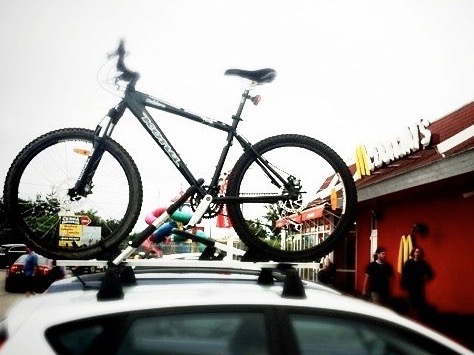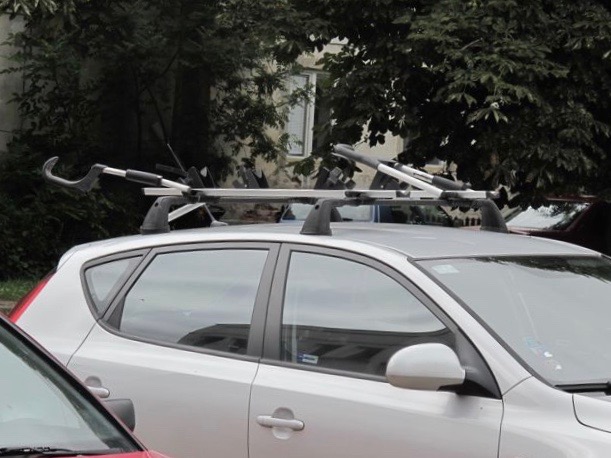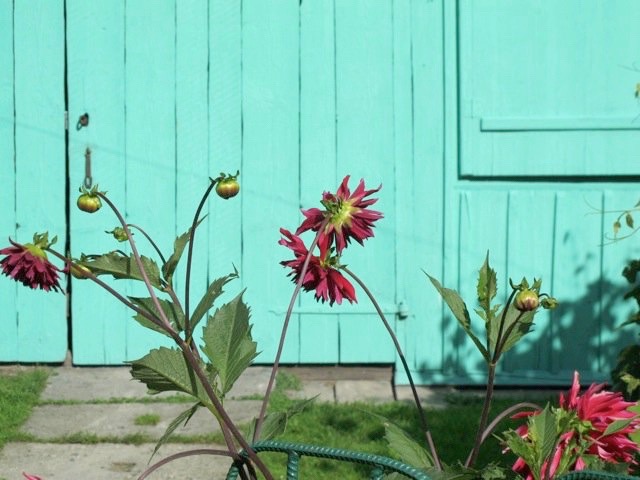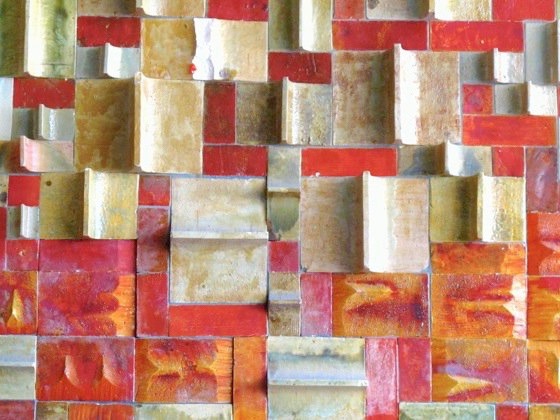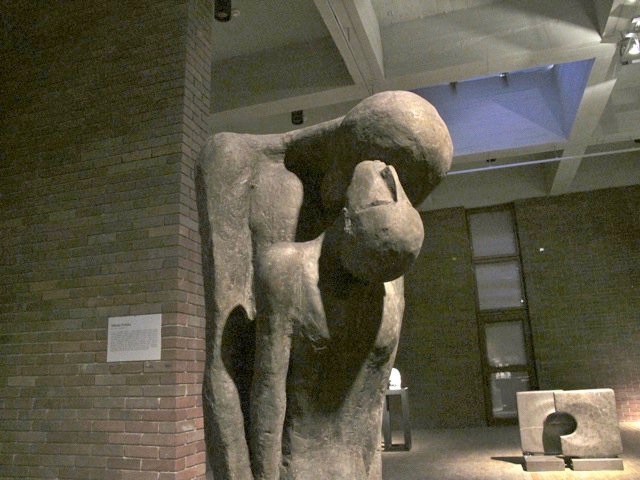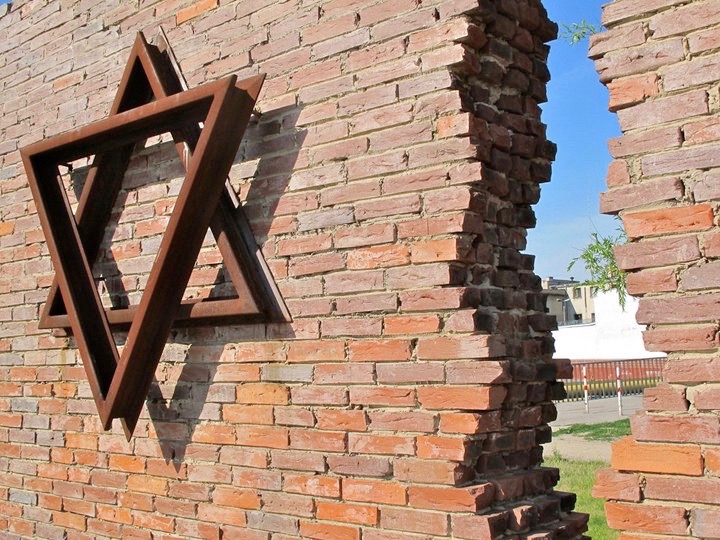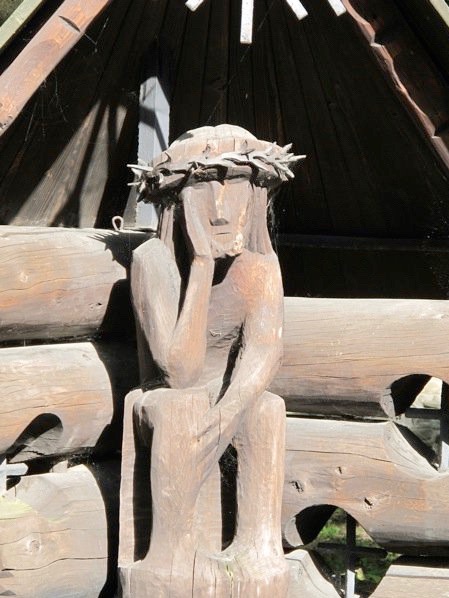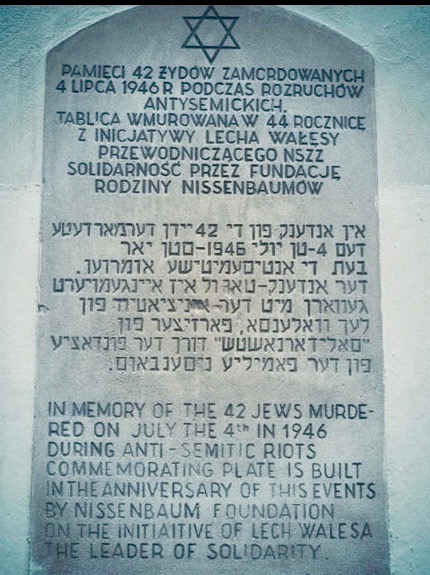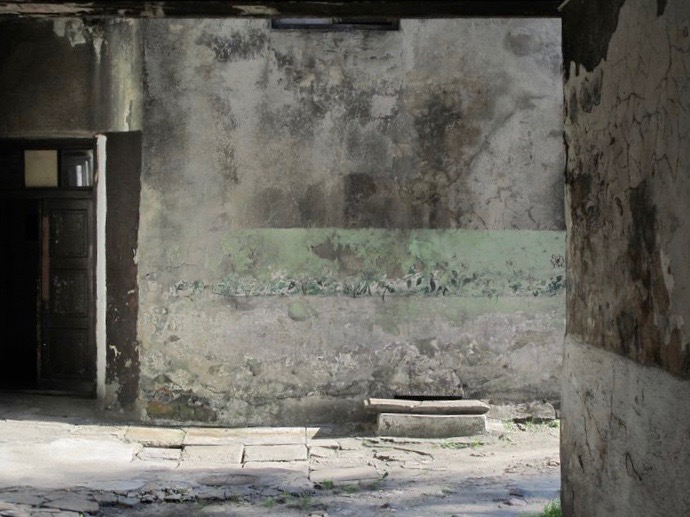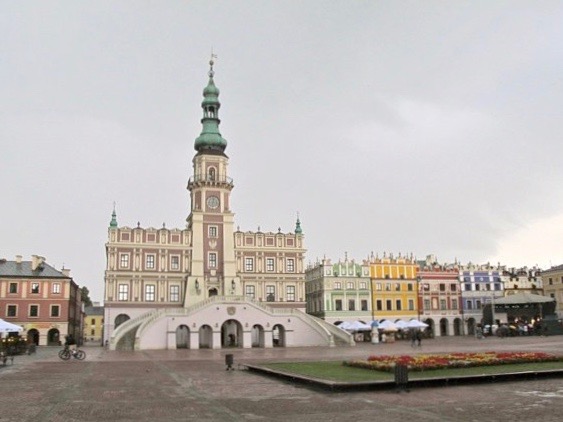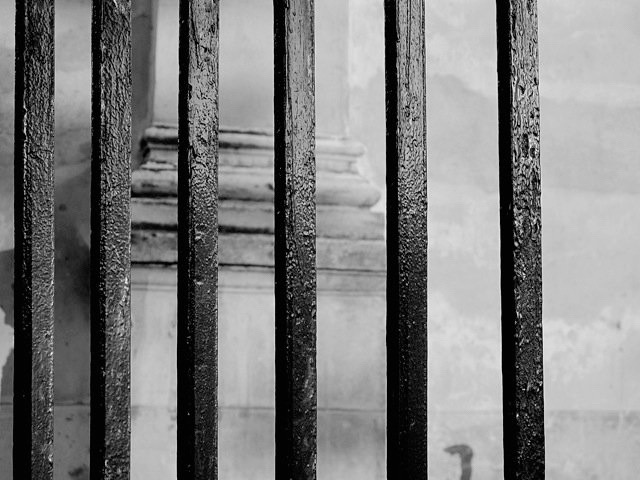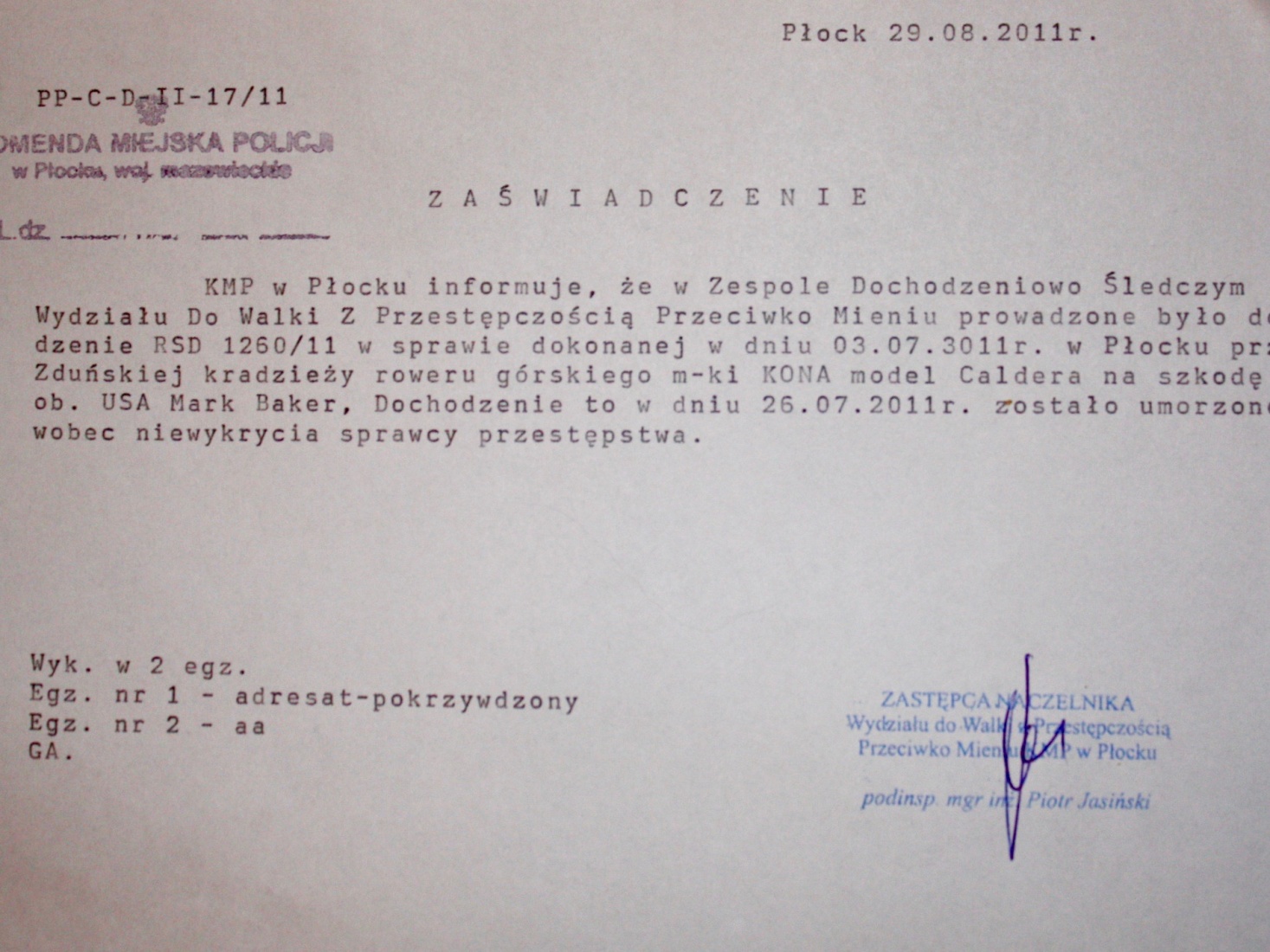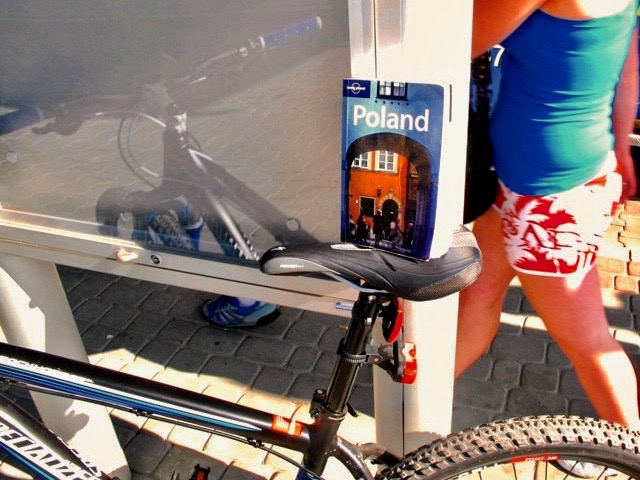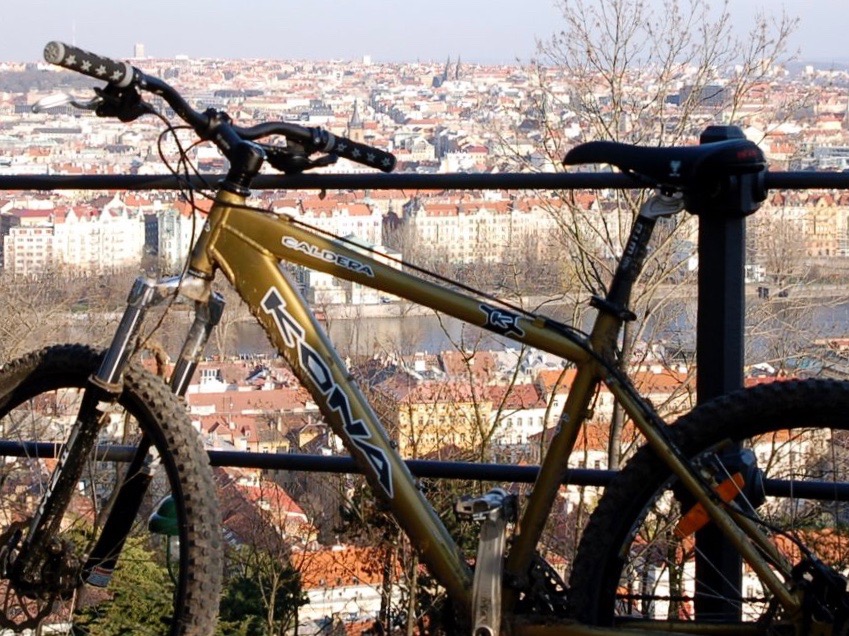Looking back, the summer of 2011 was one of the craziest times ever of my guidebook-writing career. Around that time, I switched over to working mainly for Lonely Planet -- just as the company embarked on the highly challenging process of remaking and updating their main line of guidebooks (a change-over they dubbed “product relaunch.”) Lonely Planet was responding to reader feedback by adding new sections (and deleting old ones) in order to make the books more user-friendly. For writers, it meant reworking reams of existing text and learning entirely new formatting and filing procedures.
I must have been feeling pretty confident, because that summer I applied to work on two separate guidebooks: Lonely Planet's guide to Poland; and their multi-country guide to Estonia, Latvia & Lithuania. For the Poland guide, I would be updating content for Warsaw as well as several regions situated all around the country (and getting around Poland is never easy). I would also be responsible for writing several background essays -- on topics like Polish culture and food -- that fall toward the end of the guidebook (the “backmatter” in the biz.)
For the Estonia, Latvia & Lithuania guide, I’d be researching and writing up the Lithuania part. Lithuania is a relatively small country (compared to Poland), but I’d never written a guide for a Baltic country before. In fact, it would be my first-ever trip to Lithuania and I’d have to do a lot of prep research before heading out.
The Polish materials were due by the first week of September, and Lithuania in early November. I figured if all went according to plan, I’d be able to manage the load.
But that wasn’t the whole story that summer. At the time, I was seriously considering a career switch -- a return to journalism, in a sense, but not as a reporter. I would be developing news and entertainment apps for smartphones. In May, I flew to Zurich for some intense interviews with my prospective employer, Ringier AG. They kept dragging their heels on a final offer, though, and in the end I informed them I'd be staying with Lonely Planet.
Unfortunately, those weeks of back and forth with Ringier ate up acres of precious on-the-road research time. I didn’t actually leave for Poland until June.
One of the reasons for feeling so confident going in was that Poland was a country I knew pretty well. In addition to visiting several times as a tourist, I’d written a couple of Poland guidebooks in the past for Fodor’s and Frommer’s. I’d also worked on a Kraków city guide for the Automobile Association of Great Britain. And Poland’s right next to my home base in the Czech Republic -- so traveling there would be easy.
My memory of that Poland 2011 research trip is a blur (I’ve posted photos here, but more to look at than to illustrate the story). Looking back at my photos, I see that I started out in the southeastern part of the country, around Lublin, and then made my way slowly west and north, passing through places like Kazimierz Dolny, Częstochowa, Kielce, Radom, and Łódź along the way.
As I normally do for summer research trips, I drove my own car and carried my bike on the car’s roof. The plan for each stopover was essentially the same: I’d find a place to sleep, stash the car and carry out the research by bike.
By the time July rolled around, the trip was going surprisingly well. I’d managed to cover a lot of ground and find promising new spots for the guide. I’d still have Warsaw in my future and large parts of northeastern Poland to research before starting on Lithuania, but the butterflies in my stomach had eased.
I spent July 2, a Saturday, relaxing in the tiny town of Łowicz, before turning my car northward early the next morning for the short drive up to the port town of Płock on the Vistula River. I’d never been there before, but our guidebook described it as follows: “Płock, dramatically perched on a cliff high above the Vistula, has a long, varied history and a spruced-up old center. It also can boast the remnants of a Gothic castle, a glorious cathedral, and the finest collection of Art Nouveau in the country.”
On paper, at least, Płock sounded promising.
One of the main downsides of driving in Poland -- besides the sorry state of the country's roads -- is finding a place to park. Most of the city centers are blocked off to traffic and parking is usually restricted to residents only. I found that Płock was no different as I nosed my car down the narrow lanes that led to the Old Town. After circling the block a few times, I finally found a free space about a 1km or so away in a secluded gravel lot. I didn't see any other cars parked there and the area looked seedy, but at least there weren't any “no parking” signs. I figured the car would be fine for a few hours. (What could possibly go wrong in the city "with the finest collection of Art Nouveau in the country”?)
I wasn’t sure yet if I was going to stay the night, so I left the bike behind, locked to the roof rack, and set out on foot. After checking out some sights and eating a late lunch, I decided to head back to the car and figure out the plan for the rest of the day: would I stay in Płock or try to make it to Warsaw before bedtime?
In the end, that turned out to be a moot question. As I rounded a corner for the gravel lot and the car, I noticed instantly that something was wrong. The bicycle had obviously been pulled down from the car's roof and the locks had been splintered wide open. The bastards had stolen my bike!
For anyone not into cycling, it's hard to explain what a punch in the gut it is when someone steals your bike. For most people, I suppose, a stolen bike might rate as a bad day, but hardly worthy of even a blog post. Me, though? I liken bike theft to horse-thieving in the Old West -- "hanging's too good for 'em!"
For a guidebook author (and a purported expert on the place), I suddenly found myself in an awkward situation of not quite knowing what to do. I didn't have any friends in Płock and no idea where the police department was located. In the end, I retraced my steps back to the tourist information office and asked the woman there to call the police. Once we connected with the police, they gave me the address and instructed me to drive over and talk to them in person.
So that's what I did. I found the police station on my car's GPS and reluctantly moved my vehicle from the crime scene (the bike lock was broken and roof rack scratched, but otherwise the car was in good working condition).
The station was located on the ground floor of a run-down, 1970s'-era housing project. I had no idea what the language situation would be. My Polish is rudimentary (and Czech, though fairly close to Polish, doesn't help much in moments like this). Fate turned out to be on my side -- sort of -- in this one. After the duty clerk told me she didn't speak any English and none of the other cops in the lobby could help, they finally pushed forward a reluctant young officer, Łukasz, to deal with "this foreign guy and his bike."
Łukasz spoke good English and listened patiently as I told my story. After hearing me out, however, he expressed only the vaguest interest in taking down an official theft report or returning to the gravel lot (or even riding around town with me to look for the bike on the street). I still remember the exasperated look on his face as I berated Płock's finest: "What kind of cops are you guys, anyway?"
And his chilling response: "Mark, your bike isn't in Płock anymore."
And so it was, July 3rd marked the end of the summer of 2011 for me. Oh sure, not in any real way. There would still be plenty of sunny days and fun things to do in the months ahead. But the mood had clearly darkened.
These "on the road" mishaps, even relatively unimportant ones like a stolen bike, mark out inflection points in a research trip. Before then, my summer had been busy but I still felt in control of my own time. Sitting in that depressing Płock police station, though, I felt me freedom ebb away. From here until the Lithuania deadline in November, I knew it was going to be a race against the clock.
Here's how it went down.
Poland being Poland (or simply, bureaucracy being bureaucracy), the police informed me that because I wasn't a native Polish speaker, I was prohibited by law from making out a police report without a licensed interpreter. The next available date for the interpreter was July 11 (a week away). I weighed the pros and cons and figured if I had any chance of recouping the loss through insurance, I would need a police report. I made the appointment and then headed off to Warsaw for the week to continue my guidebook research.
I showed up back in Płock on July 11 at the appointed hour, but alas the interpreter did not. After hanging out in town a couple of more days waiting on that elusive translator to show, the police decided to take my report without one. Actually, Łukasz served as my "interpreter," something he could have done on the very first day (but I digress).
From Płock, the next order of business was to make an unscheduled return to Prague to have my car's roof rack repaired, and hopefully buy a new bike. All told, that bike thing cost me at least two weeks of squandered time, and it wasn't until the end of July before I could finally resume my research trip.
I'll spare you the ins and outs of that hectic second leg of the journey. Suffice it to say, every day (and every minute) was scripted to the last detail. I wound up exhausted on the last day of August in the town of Augustów, in the far northeastern corner of Poland, where I holed up for a week in a cheap hotel to be alone with my research and write-up. (I only came out into the sunshine for some pierogi and beer). After collating my notes, banging out those essays, and learning all of the new formatting and filing procedures, I finally submitted my Poland draft -- I was a day late, but it was done.
From there, I made the short hop across the border to start a new country (and a new deadline): Welcome to Lithuania!
It was stressful and a learning experience (and I never did see that bike again), but everything turned out relatively okay in the end. The Poland book was published on schedule; Lithuania turned out to be far more interesting than I'd ever imagined. After finally convincing the Płock police department to mail me a copy of the bike theft report (not as easy as it sounds), I managed to recoup a fair bit of insurance money for the bike. Turns out that Lonely Planet writers are covered for these kinds of mishaps, and to their credit, the company bent over backwards to help me cover the loss.
I’ve mellowed in the intervening years and I'd like to hope that someone, somewhere is still enjoying my bike. Just don't get me started on Płock, please.

